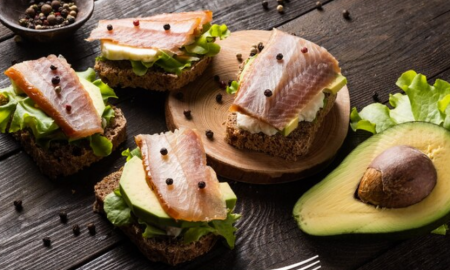
How to Get Rid of the Diet Culture and Still Look Great

Models, movies, and magazines come across our minds whenever we hear the term “diet culture.” Most of the world is ingrained with the idea that to get closer to the ideal body type, one has to control their food and movement even if it doesn’t get you any closer to healthy choices.
Although this diet culture can cause eating disorders for some people, those who do not have an actual condition are often found being targeted to body shaming, bullying, self-punishment, and negative relationship with food and their body due to the diet culture. At times, words from the diet culture often sound like advice for healthy eating but in reality are two different things. Recognizing if your diet choices are because of the result of what society says or it is being led by your body is an essential step. Let us take a closer look at what the diet culture represents.
The Diet Culture
 When we hear experts using the term “diet culture,” they do not mean you are to choose between the health and well-being of your body and mind as your priority. The diet culture simply consists of influences and words that affect our eating habits because of the societal pressure to have an ideal body. It can be difficult to differentiate between when and to what degree society is affecting our eating habits, given that the message says a body that has less fat is healthier and that some eating habits are better than others.
When we hear experts using the term “diet culture,” they do not mean you are to choose between the health and well-being of your body and mind as your priority. The diet culture simply consists of influences and words that affect our eating habits because of the societal pressure to have an ideal body. It can be difficult to differentiate between when and to what degree society is affecting our eating habits, given that the message says a body that has less fat is healthier and that some eating habits are better than others.
Smolar, the Vice President of Programs for the National Eating Disorders Association, highlighted a few questions when explaining the diet culture. What comes to your mind when you are eating food or involved in certain thoughts and behaviors? What are the reasons behind them? Is it because your body is yearning for that food and is it what you think is needed for nourishment? Or because you think that what you are doing is the right thing to do? Has society influenced you into thinking that this choice is better, despite your body telling you otherwise? The bodily needs of every individual difference in terms of the amount of food, level of activity, and the type of nourishment required.
How It Takes a Toll on Our bodies

Da’Shaun Harrison, author of Belly of the Beast, for most of his life, was told to lose weight which went on to such an extent that as a child, he got extremely sick and lost weight at an alarming rate, the illness that remained undetected for quite some time.
Controlling the way people look and behave and prioritizing one’s appearance over another affects everyone. Diet culture encourages a limited range of appearances that society accepts, putting pressure on people to meet up to these images, no matter what shape, gender, or race they belong to. And although some words may look like they are giving medical advice, in reality, they are just promoting diet culture.
Whom Can You Trade It with?
 Sabrina Strings, an Associate Professor of Sociology at the University of California, Irvine, says everyone should enjoy having a cake, maybe a pie, and whatever they wish to devour and shouldn’t feel like we don’t have the right to enjoy them. She says joyful eating is an essential human experience that the diet culture steals away from a lot of people.
Sabrina Strings, an Associate Professor of Sociology at the University of California, Irvine, says everyone should enjoy having a cake, maybe a pie, and whatever they wish to devour and shouldn’t feel like we don’t have the right to enjoy them. She says joyful eating is an essential human experience that the diet culture steals away from a lot of people.
This, however, does not mean we completely ignore the essence of nutrition but rather what you physically and mentally need instead of others dictating how you should look like. It can lead to you having the worst relationship with food if you punish yourself around it and might get more involved in things that would not nourish your body.
If you are struggling to find out what your body needs for nourishment, several professionals in this field can help you identify the choices coming from your body and the choices coming from the diet culture surrounding you. If you have spent most of your life involved in the diet culture and you want to get out of it, start with therapists and dieticians who have majored in eating disorders or instinctive eating. Remember that good health means mental and emotional well-being too, and it’s not just about maintaining your shape.
More in Diet
-
`
3 Tips for Rotator Cuff Health to Speed Up Shoulder Recovery
Rotator cuff health tips can help reduce pain and improve mobility after an injury. The rotator cuff is crucial for shoulder...
September 12, 2024 -
`
Christina Aguilera Impresses Fans and Facial Aesthetics Docs With Ultra-Slim & Youthful Look
Christina Aguilera’s weight loss is a hot topic these days, and for good reason. After stepping out of the spotlight for...
September 7, 2024 -
`
Visiting Brussels, Belgium, For the First Time? Here is What You Should See & Do
When exploring the capital of Belgium, you might wonder what the top things to see and do are. This cosmopolitan hub,...
August 28, 2024 -
`
The Pork Adobo Recipe to Take Your Dinner to the Next Level
The pork adobo recipe is a culinary gem that truly showcases the heart of Filipino cuisine. This dish, deeply rooted in...
August 21, 2024 -
`
Can I Shrink My Liver in 2 Days? A Guide to Liver Shrinking Diets
Can I shrink my liver in 2 days? This question is often asked by individuals preparing for weight loss surgery or...
August 16, 2024 -
`
George Conway Weight Loss – How Did He Shed 40 Pounds?
George Conway, the legal eagle turned political commentator, has recently captured the public’s attention for more than his sharp legal mind....
August 5, 2024 -
`
Japan Trip Cost in 2024: A Comprehensive Guide For Beginners
How much would a trip to Japan cost? Well, it is a dream destination for many, but understanding the expenses involved can...
July 31, 2024 -
`
Healthy and Quick Pescatarian Breakfast Recipes
When it comes to breakfast, choosing a pescatarian diet can be both nutritious and exciting. Incorporating seafood and plant-based ingredients into...
July 25, 2024 -
`
How Long Does a Root Canal Take to Heal?
When facing the prospect of a root canal, one common question is, “How long does a root canal take to heal?”...
July 19, 2024










You must be logged in to post a comment Login